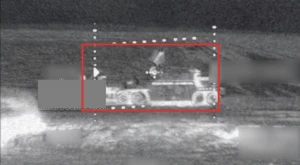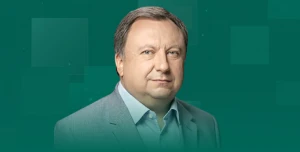
Why does Hungary prefer the company of Russia and China?
Ukrainian journalist Orest Sokhar believes that four states on the Eurasian continent are dreaming of reviving the imperial past: China, Russia, Turkey, and Hungary.
The Entente countries - the winners of World War I and the defeated Hungary - signed the Treaty of Trianon, according to which Hungary lost 63.2% of its population and 2/3 of its territory, which was "divided" by its neighbors:
Romania: Transylvania and Eastern Banat.
Czechoslovakia: Slovakia, Transcarpathia (annexed by Soviet Ukraine in 1945).
Yugoslavia: Croatia, Backa and western Banat.
Austria: Burgenland.
In the minds of the average Hungarian, the capitulation of 1920 is associated with the greatest national tragedy, and the revival of the empire is a great phantom dream.
"We, the members of the Hungarian nation, promise to preserve the intellectual and spiritual unity of our nation, torn apart by the storms of the last century," is one of the first sentences of the latest Hungarian constitution.
The country's modern coat of arms includes medieval elements - the three green Hungarian mountains of Tatra, Matra and Fatra, two of which were "taken" by their neighbors.
Orban's Fidesz party exploits the theme of imperialism, and the prime minister himself likes to invoke the symbols of "Greater Hungary".
Hungary expects a weakening of Europe and a strengthening of China; Orban sees liberal democracy as destructive, since corruption, sex and moral degradation are supposedly destroying the United States and, by extension, Western Europe. Instead, Budapest embraces "illiberal democracy" and admits that it feels more at home in the East than in Brussels.
In October 2023, when the world was trying to appease Beijing and Moscow, Orban flew to the Belt and Road Forum in Beijing, where he paraded in front of Xi and Putin. The main message was to build a common future.
Hungary buys Russian oil and gas, Rosatom is building a nuclear power plant in Hungary in 2014. A Russian intelligence headquarters was opened in Budapest under the guise of a bank. Orban is an advocate of the Kremlin's aggressive policy and logically hinders Ukraine's European integration.
Ukrainian intelligence services reported that Hungary was aware of Russia's imminent full-scale attack on Ukraine and even planned to annex part of Ukrainian territory. This hypothesis is indirectly confirmed by the fact that on the eve of the large-scale invasion - February 1, 2022 - Orban flew to Russia.
The attraction to the East is explained by ethnic similarities. The ancestors of the Hungarians lived in the northeastern part of the Ural Mountains, the Hungarian language is related to the Khanty and Mansi languages, and it was strongly influenced by the Turkic and Iranian languages. Therefore, Orban's foreign policy strategy is based on Turkism, which emerged in the 19th century in Russia and Austria-Hungary and is based on the common origin of Turkic, Mongolian and other Altai peoples.
Today, Budapest acts de facto as an agent of influence of the revisionist East in the EU, blocking Sweden's accession to NATO and assistance to Ukraine, but Brussels is in no hurry to remove the foreign body from its political womb.
Article 7 of the EU Treaty provides for the possibility of suspending the rights of a member in case of violation of the fundamental principles of the EU. Such a political "amputation" would free Budapest's hands and it would slide into the open political embrace of China and Russia. That is why Brussels only manipulates Article 7, but has not yet used it. In particular, German Chancellor Scholz forced Orban to leave the room during the vote on Ukraine's European integration.
It seems that under the control of this "Article 7" Brussels and Budapest will coexist for some time until the political situation changes: either the Hungarian people will re-elect their government or Hungary will finally openly join the "brotherly nations" of the East.
- News














































